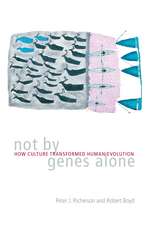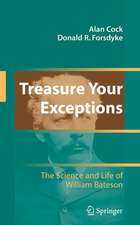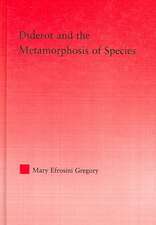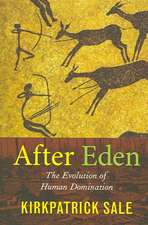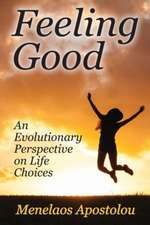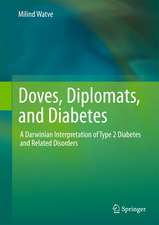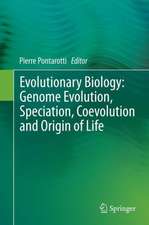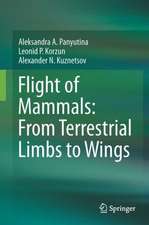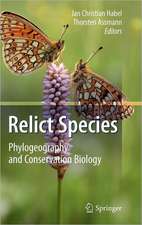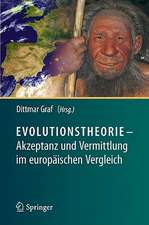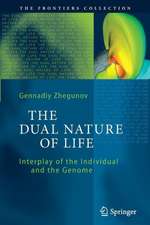Sexual Selection in Homo sapiens: Parental Control over Mating and the Opportunity Cost of Free Mate Choice
Autor Menelaos Apostolouen Limba Engleză Hardback – 4 iul 2017
The author has coined the term parental choice to describe the sexual selection force that arises from parental control over mating. He synthesizes extensive theoretical and empirical work in order to understand and model this force. The aim is to understand which factors give rise to parental choice and to combine these insights into constructing a more formal model. It also aims to further examine whether the predictions of the model fit the patterns of mating found across different types of human societies, and how the model can be used to understand the evolution of behavioral traits involved in mating.
By synthesizing the various arguments put forward and published across the literature, the book offers a comprehensive argument and overview of an aspect of sexual selection unique to our species. Furthermore, the book revises and extends previously made arguments and models, while it provides useful insights on how the proposed revision of sexual selection theory can enable us to understand a wide range of human behavioral phenomena. It should be key reading for those interested in studying sexual selection in general and in the Homo sapiens species in particular.
| Toate formatele și edițiile | Preț | Express |
|---|---|---|
| Paperback (1) | 636.30 lei 6-8 săpt. | |
| Springer International Publishing – 4 aug 2018 | 636.30 lei 6-8 săpt. | |
| Hardback (1) | 642.51 lei 6-8 săpt. | |
| Springer International Publishing – 4 iul 2017 | 642.51 lei 6-8 săpt. |
Preț: 642.51 lei
Preț vechi: 755.88 lei
-15% Nou
Puncte Express: 964
Preț estimativ în valută:
122.96€ • 127.59$ • 102.77£
122.96€ • 127.59$ • 102.77£
Carte tipărită la comandă
Livrare economică 17-31 martie
Preluare comenzi: 021 569.72.76
Specificații
ISBN-13: 9783319589985
ISBN-10: 3319589989
Pagini: 189
Ilustrații: XXI, 189 p.
Dimensiuni: 155 x 235 mm
Greutate: 0.48 kg
Ediția:1st ed. 2017
Editura: Springer International Publishing
Colecția Springer
Locul publicării:Cham, Switzerland
ISBN-10: 3319589989
Pagini: 189
Ilustrații: XXI, 189 p.
Dimensiuni: 155 x 235 mm
Greutate: 0.48 kg
Ediția:1st ed. 2017
Editura: Springer International Publishing
Colecția Springer
Locul publicării:Cham, Switzerland
Cuprins
Chapter 1: Sexual Selection Forces.- Chapter 2: Parent-Offspring Conflict over Mating.- Chapter 3: The Model of Parental Choice.- Chapter 4: Sexual Selection under Parental Choice in Hunting and Gathering Societies.- Chapter 5: Sexual Selection under Parental Choice in Agropastoral Societies.- Chapter 6: Sexual Selection under Parental Choice in Post-Industrial Societies.- Chapter 7: Sexual Selection under Parental Choice Across Societies and Across Time.- Chapter 8: Variation in the Strength of Parental Choice within and Between Societies of the Same Subsistence Type.- Chapter 9: In-law Preferences: What Parents Want in a Prospective Daughter- And Son-in-Law.- Chapter 10: Parental Choice and Its Impact on Adaptations Involved in Mating.- Chapter 11: Environmental Mismatches and Mating Effectiveness.
Notă biografică
Dr Menelaos Apostolou was born in Athens, Greece. He completed his undergraduate studies at the Lancaster University, UK and his graduate studies at the University of Warwick, UK. He currently lives in the Republic of Cyprus, and he is an associate professor of psychology at the University of Nicosia, Cyprus. He has published several peer-reviewed articles, and he is the author of ‘Sexual selection under parental choice: The evolution of human mating behavior’ and the ‘Feeling Good: An Evolutionary Perspectives on Life Choices.’ His research interests include evolutionary theory, mate choice, human sexuality, individual differences, and wellbeing.
Textul de pe ultima copertă
The present book aims to examine how sexual selection works in the human species. Almost all scholarly effort focuses on sexual selection in non-human species and extrapolates the findings to the human one. However, human mating has a unique pattern not found in any other species, namely parental influence over mate choice. Across preindustrial societies, the typical pattern of long-term mating is arranged marriage, where parents choose spouses for their children. By doing so, parents effectively become a sexual selection force. Traits that enhance an individual’s chance to be selected as a son- or a daughter-in-law confer important reproductive advantages to those who are endowed with them, increasing in frequency in the population.
The author has coined the term parental choice to describe the sexual selection force that arises from parental control over mating. He synthesizes extensive theoretical and empirical work in order to understand and model this force. Theaim is to understand which factors give rise to parental choice and to combine these insights into constructing a more formal model. It also aims to further examine whether the predictions of the model fit the patterns of mating found across different types of human societies, and how the model can be used to understand the evolution of behavioral traits involved in mating.
By synthesizing the various arguments put forward and published across the literature, the book offers a comprehensive argument and overview of an aspect of sexual selection unique to our species. Furthermore, the book revises and extends previously made arguments and models, while it provides useful insights on how the proposed revision of sexual selection theory can enable us to understand a wide range of human behavioral phenomena. It should be key reading for those interested in studying sexual selection in general and in the Homo sapiens species in particular.
The author has coined the term parental choice to describe the sexual selection force that arises from parental control over mating. He synthesizes extensive theoretical and empirical work in order to understand and model this force. Theaim is to understand which factors give rise to parental choice and to combine these insights into constructing a more formal model. It also aims to further examine whether the predictions of the model fit the patterns of mating found across different types of human societies, and how the model can be used to understand the evolution of behavioral traits involved in mating.
By synthesizing the various arguments put forward and published across the literature, the book offers a comprehensive argument and overview of an aspect of sexual selection unique to our species. Furthermore, the book revises and extends previously made arguments and models, while it provides useful insights on how the proposed revision of sexual selection theory can enable us to understand a wide range of human behavioral phenomena. It should be key reading for those interested in studying sexual selection in general and in the Homo sapiens species in particular.
Caracteristici
The only book in evolutionary biology which focuses exclusively on how sexual selection works in humans A comprehensive account of aspects of sexual selection that are unique to humans Explains how sexual selection under parental choice can enable us to understand a wide range of behavioral and social phenomena

